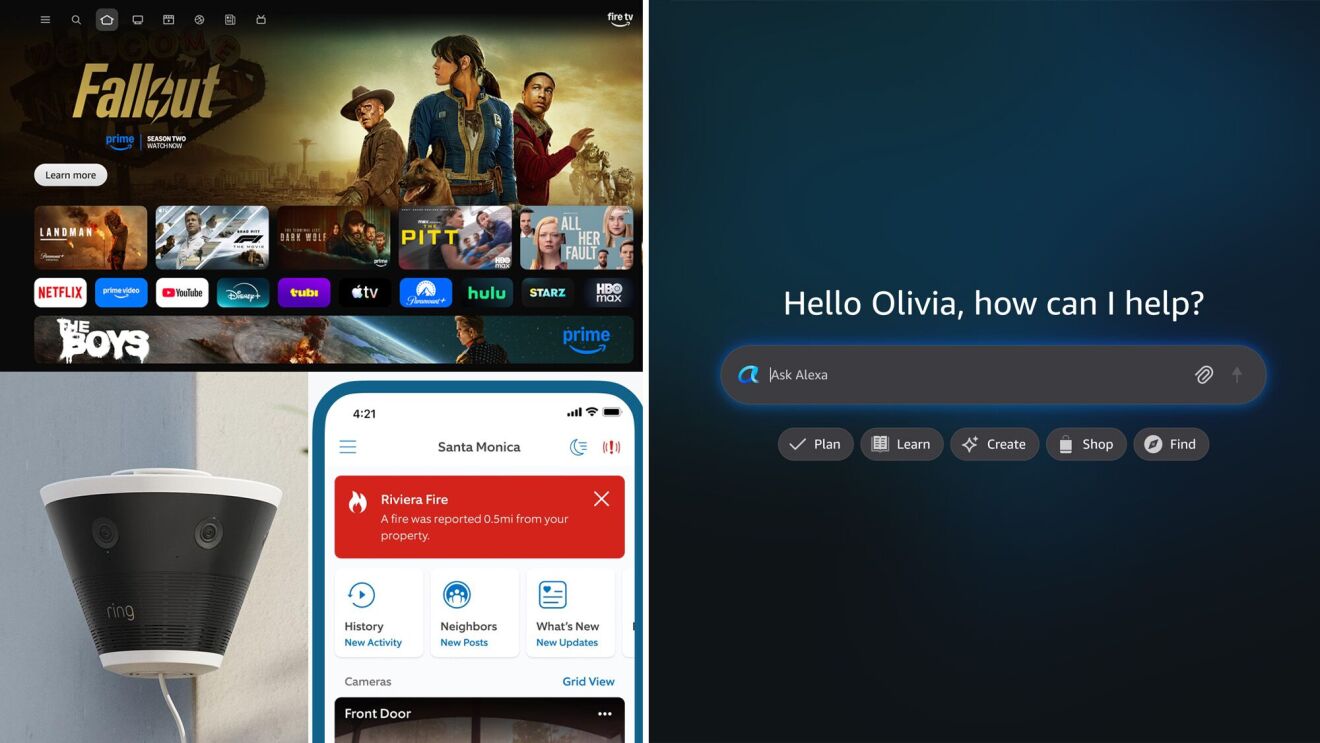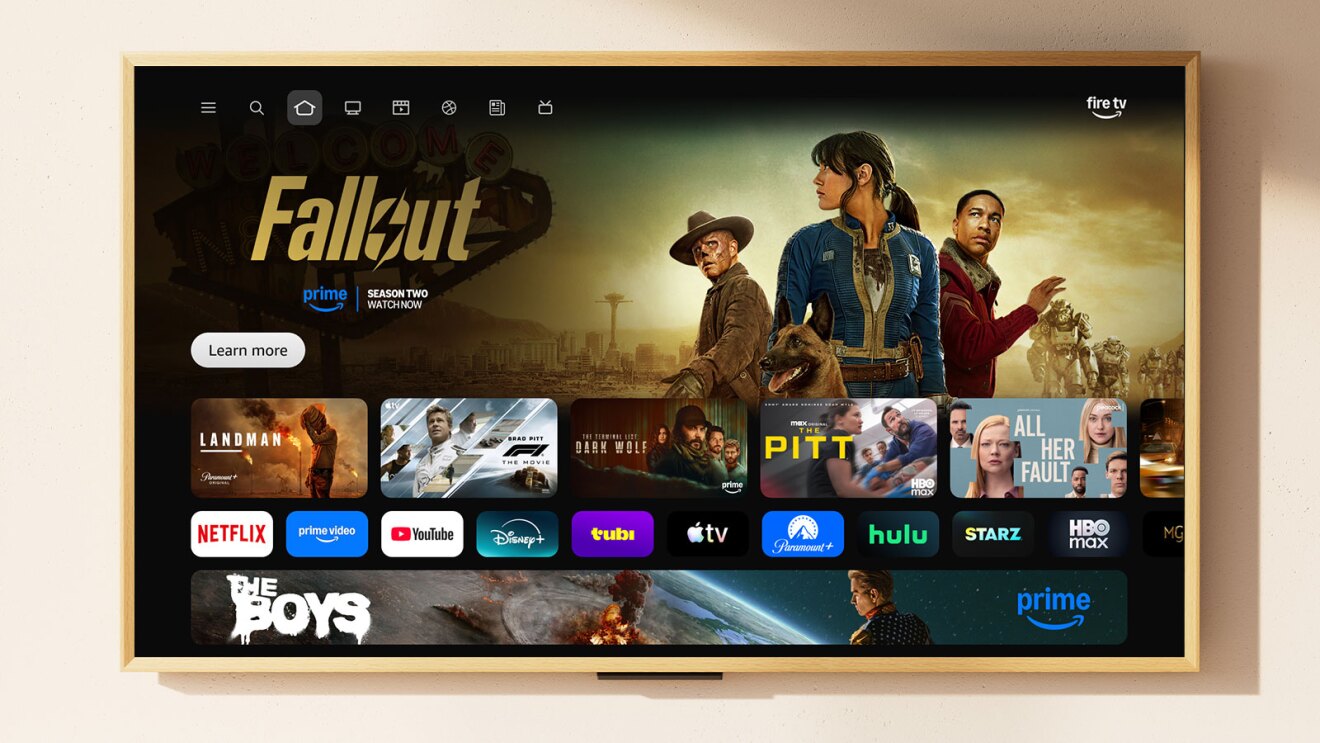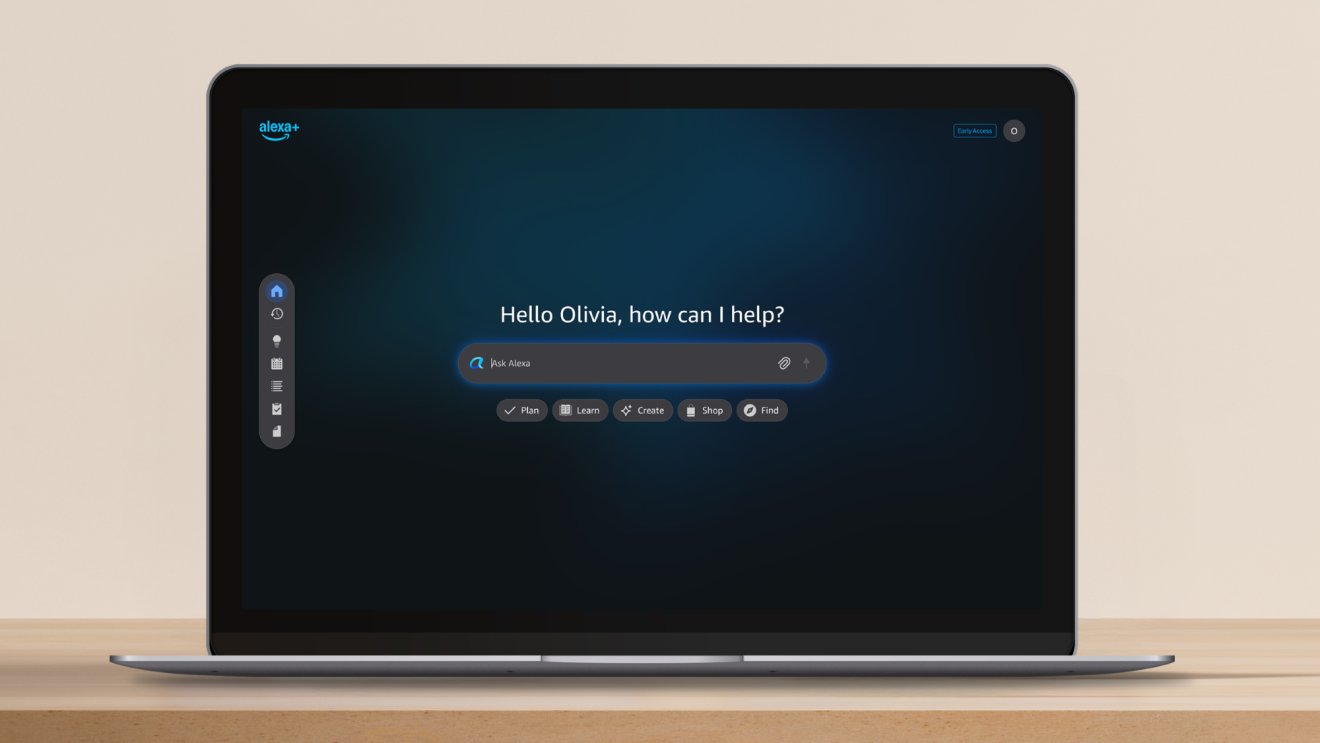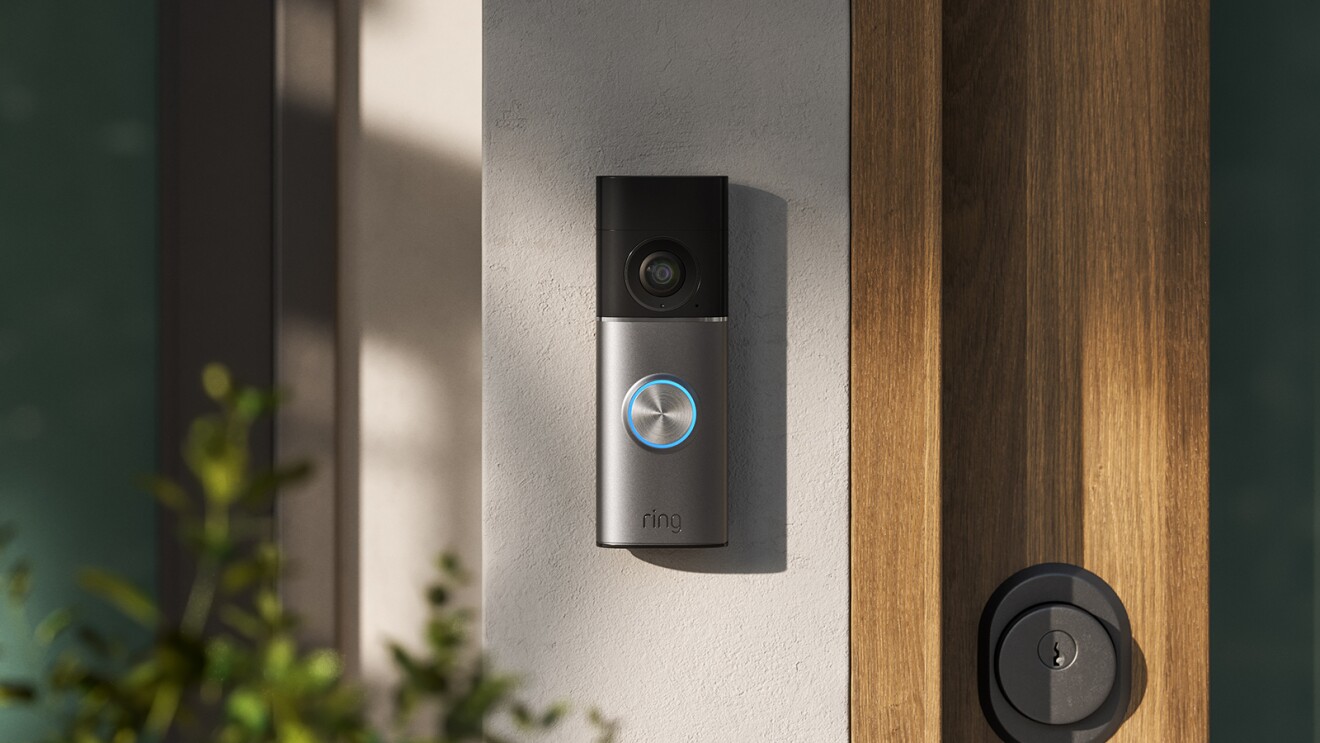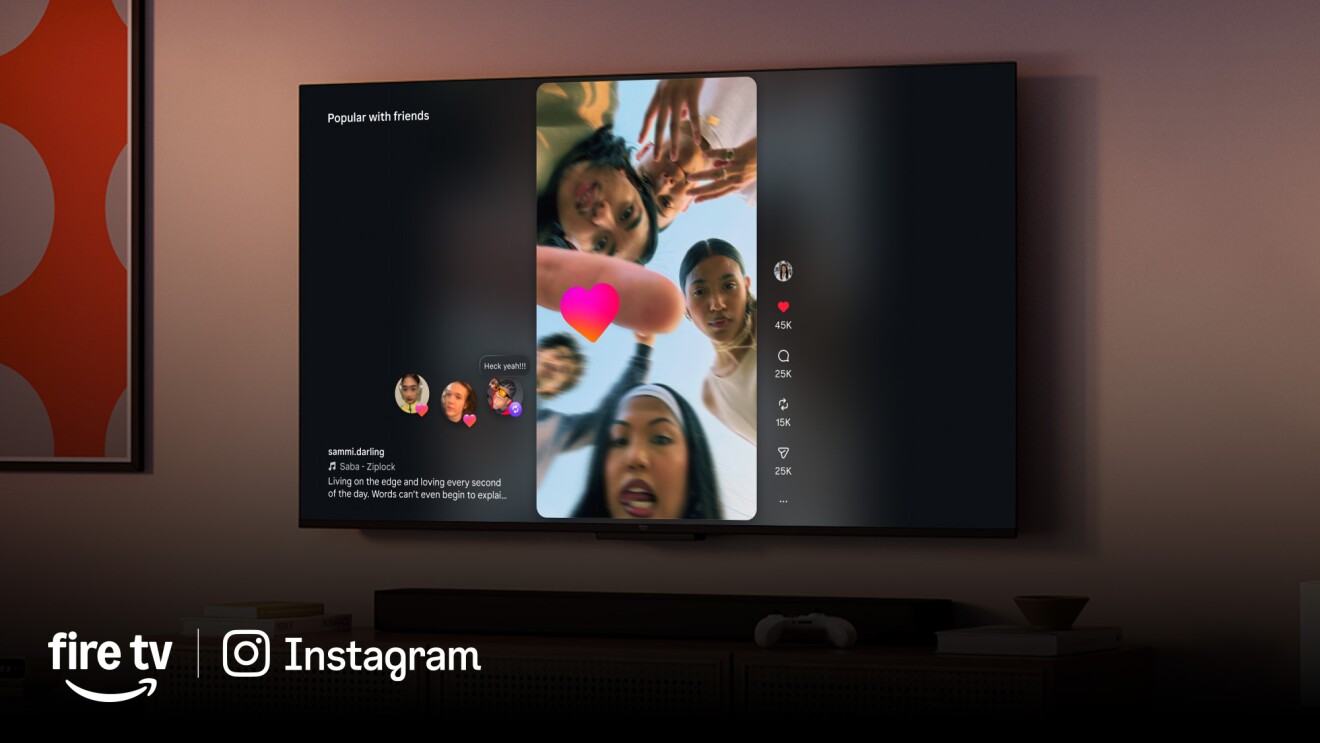For most of human history, privacy looked like a closed door or a shut drawer. But the digital age has changed that.
“I think of my own childhood, and privacy literally was being in my room and not being bothered, or having a diary and knowing nobody would read it,” said Leila Rouhi, vice president of trust and privacy for Amazon’s Devices & Services organization.
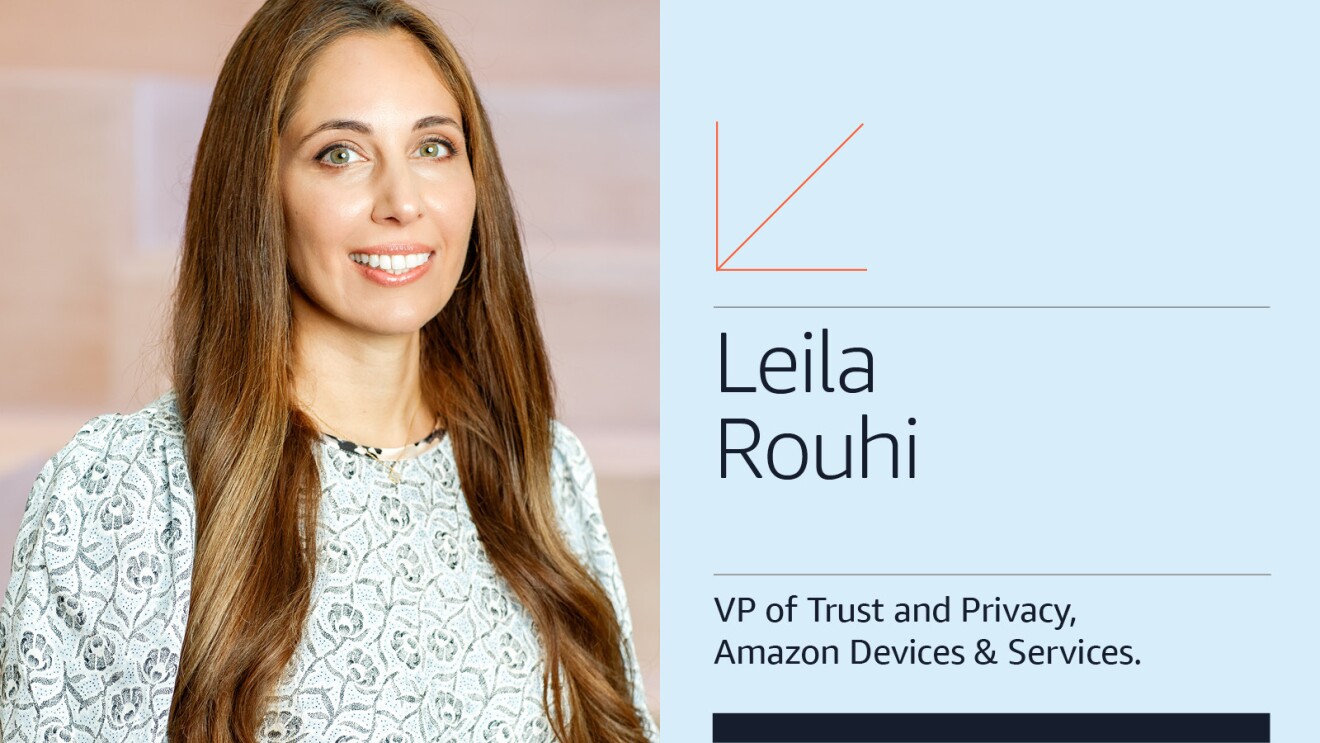
“Technology has completely transformed that landscape,” she said. “Privacy is much more to customers now, in terms of knowing that their personal information is protected, knowing exactly where their information is going, how it's being used, and what choices they have over that information. It involves transparency and control.”
Rouhi helps lead Amazon’s work to ensure that customer privacy is protected. Learn more below about her team and how she was drawn to the work (hint: it involved a burglary).
When it comes to trust, there are no second chances
Thinking about privacy and what it means to customers occupies much of Rouhi’s time. She leads a team of Amazon engineers, designers, inventors, and other experts who ensure that the company’s popular devices and services—like the Echo smart speaker, the Ring smart doorbell, and Fire TV—build and maintain trust for millions of customers around the world.
“Privacy is foundational to everything we do,” Rouhi said. “It’s essential to customer trust. We know that if we break that trust, we’re not going to get a second chance. Customers have a lot of choices when it comes to what products they want in their homes, so privacy literally has to be at the foundation of the product and be built into it from day one.”
The biggest misconception about privacy is that companies care about it only because they have to, she said. And that’s false. “We look at everything we do through a customer lens. We think about how we can make privacy features really easy for our customers to use and understand,” Rouhi said.
That’s why Amazon builds intuitive privacy features and educates customers about how to use them. For example: the blue light that shows when Alexa is listening to your request, customizable privacy zones that allow Ring customers to block out “off-limit” areas and respect their neighbors’ privacy, and privacy settings to control devices.
“The first step is on companies like us,” Rouhi said. “We think about making privacy features really easy to use and to understand. But then we also play an important role in educating and empowering the customer.”
Staying close to the customer
Rouhi can relate to that customer experience. Before she was a privacy expert at Amazon and Ring, she was a customer.
"By thinking about privacy, you’re building trust with the customer. When you build trust with the customer, they're much more likely to engage with your product. That in turn gives you the ability to continue innovating.”
Leila Rouhi
Vice president of trust and privacy for Amazon’s Devices & ServicesShe was a mergers and acquisitions lawyer when a burglar broke into her parents’ Los Angeles home. She bought them a Ring smart doorbell and fell in love with the technology. So much so that in 2016, when Ring was still a startup, she got onboard as its inhouse counsel.
“I saw that it was making them (my parents) feel safer at home and more comfortable,” Rouhi said. “And then it had benefits that we actually hadn't really anticipated for my dad who's older and had more challenges moving around the home. It seemed like a no brainer to take that opportunity and join Ring.”
Rouhi’s superpower
When Amazon acquired Ring in 2018, Rouhi continued to grow her responsibilities, which now include trust and privacy across Amazon’s Devices and Services business. But she still finds time to seek insights and bring her skills to a variety of places. Volunteering as a suicide prevention counsellor, for example, has allowed her to become a better listener and problem solver.
“Listening is an amazing superpower,” Rouhi said. “When somebody calls you and you don't know what that phone call is going to be, it just helps you to be able to deal with almost any situation that comes your way, maintain your cool, and work with the person to try to come to a resolution and try to better the situation.”
Using data securely and to benefit customers
Rouhi is using that superpower to engage with customers and her colleagues, and help them build new devices and services with privacy at their core. That includes data stewardship, which Rouhi said is especially significant.
“The data we do use, we only use to provide our services and improve the customer experience, to create these delightful things that customers love,” she said.
With Alexa, those experiences might include personalized music or TV recommendations or Hunches that might help you in your home.
“We have an obligation to be really great stewards of our customer data, and I believe that we are,” Rouhi said. “We have a lot of mechanisms in place designed with the goals of keeping data secure and ensuring that we are using it responsibly and only in ways that ultimately benefit the customer.”
How privacy drives innovation
Rouhi stressed there is no trade-off between innovation and customer privacy. Privacy itself can be a wellspring for innovation, she said, especially when it’s built into the product.
“It becomes a flywheel for innovation. By thinking about privacy, you’re building trust with the customer. When you build trust with the customer, they're much more likely to engage with your product. That in turn gives you the ability to continue innovating.”
Building that customer trust includes “putting in the resources and the time to really build an amazing experience for our customers,” she added. She relayed a story about a customer whose wife had had a stroke at home and was able to use the Alexa communication feature to alert her husband that she needed help.
“They believe that if they had not gotten that help just in time, that outcome would have been really different for that family,” Rouhi said. “Hearing those stories, and knowing the work we do directly improves our customers’ lives, is so motivational. It makes me so excited to come to work.”
Trending news and stories




